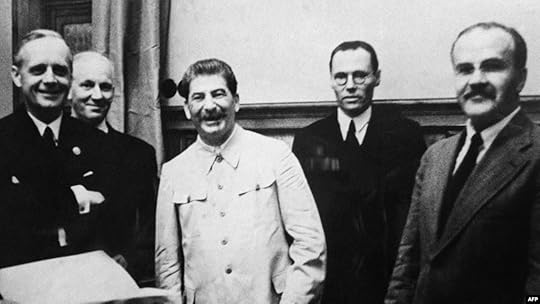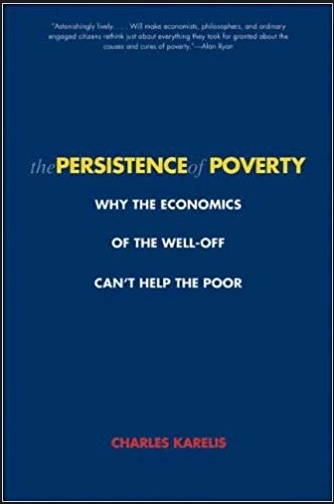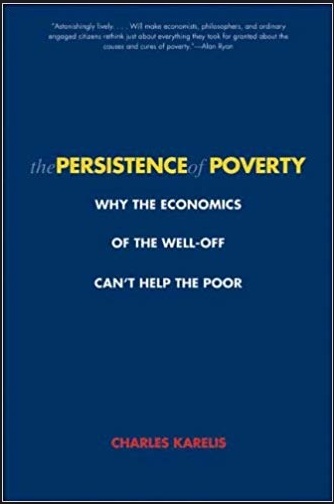Bryan Caplan's Blog, page 45
September 3, 2019
The “Culture of Poverty” and the War on Poverty
Many critics of Oscar Lewis viewed him as a traitor to the left. The angriest of these critics was probably Charles Valentine. In 1969, the journal Current Anthropology gave Lewis (and about a dozen other scholars) the chance to respond to Valentine’s critique of culture of poverty research. Lewis’ whole reply is well-done, but here’s my favorite part:
At one point Valentine charges that my concept of a culture of poverty was a guiding principle of the war against poverty and must, therefo...
September 1, 2019
Codifying Our Worst Impulses: The Ideas that Started World War II

Today is the 80th anniversary of the start of World War II, the deadliest violent conflict in human history. Death tolls vary, but often reach 80 million souls. What caused it? Lists of proximate causes never end, but the only credible “root cause” is simply: ideas. Three countries started World War II: Japan, Germany, and the Soviet Union. While popular summaries rarely list the Soviets as initiators because Hitler double-crossed Stalin two years later, Molotov and Ribbentrop’s so-cal...
August 29, 2019
Communism and Fascism

In September of 1939, almost exactly 80 years ago, Nazi Germany and the Soviet Union started World War II by invading Poland. Though Hitler double-crossed Stalin two years later, the secret provisions of the Molotov-Ribbentrop Pact explicitly divided Eastern Europe between them. How was this alliance possible – and what was it all about? False modesty aside, I think that my encyclopedia articles on Communism and Fascism are a fine place to start.
The post Communism and Fascism appear...
August 28, 2019
Karelis Responds to You
Here are Charles Karelis’ responses to readers’ questions.
Would I prefer EITC or a guaranteed basic income?
My response. I’m not sure, but here are the key pros and cons, as far as I can see.
EITC is great because it combines two upward vectors pressing on work effort: an income effect (according to my theory of IMU poverty relievers) and a substitution effect (because it makes non-work more expensive). However, EITC is invidious. Not everybody gets it, and it exacerbates class antagonism b...
August 27, 2019
Karelis Responds to Me
From Charles Karelis, author of The Persistence of Poverty.
Here are some responses to critics who were kind enough to participate in Bryan Caplan’s “book club” on my The Persistence of Poverty. I am grateful to everyone who gave my ideas some attention, starting of course with Bryan, and I would be happy to continue the conversation if Bryan doesn’t mind forwarding other questions or rebuttals.
Caplan. “You say that single parenthood is not a “global and perennial” feature of poverty. I su...
August 26, 2019
When Was This Written?
Freedom is diminished daily; the excesses of reaction and repression become larger and bolder; the unthinkable glows forth on our television screens each night, and the unspeakable flows glibly from the mouths of high government officials. Scores of… young black militants have been murdered, and hundreds more have been wounded and jailed. In Washington, the words “preventive detention” are no dirtier than equivalent phrases in Berlin were in 1936; resistance to desegregation is being openly...
August 21, 2019
Ask the Author: Questions for Karelis

Charles Karelis, author of The Persistence of Poverty, is happy to answer your questions. Please write them in the comments, and he’ll respond in a regular post.
To get things started, here are a few questions from me.
1. Your theory seems to imply that when people temporarily have many personal problems, they will start doing painful things with long-run benefits. Example: If you’re already (temporarily) miserable, why not go on a diet and start exercising, so when your problems end, you’...
August 20, 2019
The Persistence of Poverty: The Spinoffs (Part 8)

If Karelis is wrong, why have I written so much about his work? Because his arguments are so much better than his conclusion. Charles Karelis hasn’t explained poverty, but he has still enriched our understanding. He’s hardly the first person to emphasize the connection between behavior and persistent poverty, but he makes this point more forcefully and eloquently than almost anyone else. And he’s the first person to highlight the ubiquity of increasing marginal utility in real life. It’...
August 19, 2019
Dominance: Material vs. Rhetorical
Do the rich dominate our society?
In one sense, they obviously do. Rich people run most of the business world, own most of the wealth, and are vastly more likely to be powerful politicians.
In another sense, however, the rich aren’t dominant at all. If you get in public and loudly say, “Rich people are great. We owe them everything. They deserve every penny they’ve got – and more. People who criticize the rich are just jealous failures,” almost everyone will recoil in horror.
Do males do...
August 15, 2019
The Persistence of Poverty: It’s Complicated (Part 7)

If Karelis fails to explain the persistence of poverty, what does? Let’s return to his six competing theories: (1) apathy, (2) fragmentation of the self (which economists might call “hyperbolic preferences”), (3) akrasia (self-control problems), (4) restricted opportunity, (5) unusual preferences, and (6) perverse policies. How do they really hold up?
(1) apathy. I don’t see this as a conceptually independent explanation. Outright apathy is a special case of either (a) hyperbolic prefere...
Bryan Caplan's Blog
- Bryan Caplan's profile
- 374 followers



